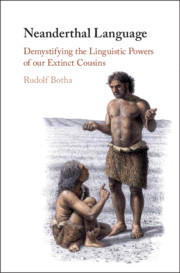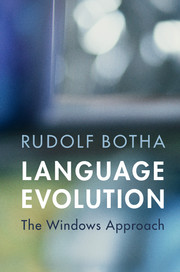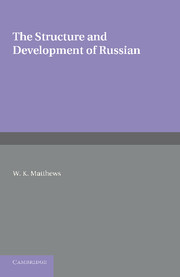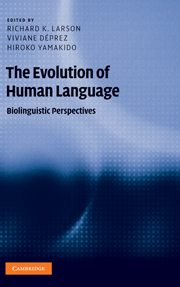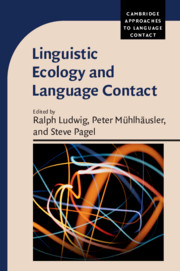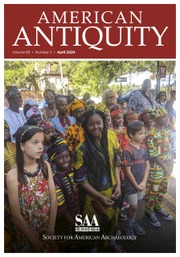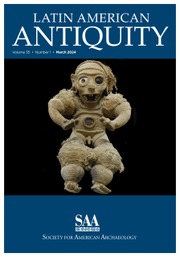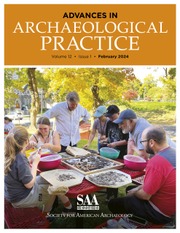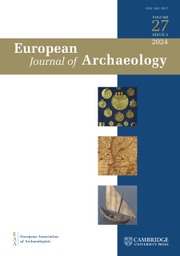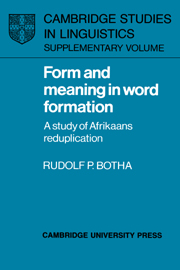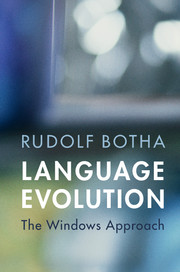Neanderthal Language
Demystifying the Linguistic Powers of our Extinct Cousins
$130.00 (C)
- Author: Rudolf Botha, University of Stellenbosch, South Africa
- Date Published: June 2020
- availability: Available
- format: Hardback
- isbn: 9781108491327
$
130.00
(C)
Hardback
Other available formats:
eBook
Looking for an examination copy?
This title is not currently available for examination. However, if you are interested in the title for your course we can consider offering an examination copy. To register your interest please contact [email protected] providing details of the course you are teaching.
-
Did Neanderthals have language, and if so, what was it like? Scientists agree overall that the behaviour and cognition of Neanderthals resemble that of early modern humans in important ways. However, the existence and nature of Neanderthal language remains a controversial topic. The first in-depth treatment of this intriguing subject, this book comes to the unique conclusion that, collective hunting is a better window on Neanderthal language than other behaviours. It argues that Neanderthal hunters employed linguistic signs akin to those of modern language, but lacked complex grammar. Rudolf Botha unpacks and appraises important inferences drawn by researchers working in relevant branches of archaeology and other prehistorical fields, and uses a large range of multidisciplinary literature to bolster his arguments. An important contribution to this lively field, this book will become a landmark book for students and scholars alike, in essence, illuminating Neanderthals' linguistic powers.
Read more- The existence and nature of Neanderthal language is currently a hot and controversial topic and this is the first book to give it an in-depth treatment
- Draws on, and appraises, a wide range of multidisciplinary literature, adopting a unique conceptual approach to come to conclusions about the existence and nature of Neanderthal language
- Written in a clear accessible way and amply illustrated with the aid of figures and images, the book can appeal to a broad audience.
Reviews & endorsements
'Searching for the origin of human language has over the last decades developed into a lively field of scholarly discourse, generating a range of new hypotheses. But are these hypotheses really empirically sound? There is no one to answer this question more competently than Botha, as he demonstrates once again in this thrilling book on Neanderthal language.' Bernd Heine, University of Cologne
See more reviews'Botha examines both the evidence and the reasoning behind the various claims for Neanderthal linguistic abilities and finds them all wanting. Most usefully, he sets out a general framework for evaluating such inferences, a framework that is applicable not just in the parochial domain of Neanderthal studies, but in any scientific interpretation of behaviour in the deep past.' Thomas Wynn, University of Colorado
'… a paradigm shift for anthropologists, this book challenges the faulty reasoning that has led to over-generous or specious conclusions about Neanderthals' language capabilities. A tour de force in logic, it should be mandatory reading for anyone who is interested in in such discussions.' Frederick L. Coolidge, University of Colorado, Colorado Springs
Customer reviews
Not yet reviewed
Be the first to review
Review was not posted due to profanity
×Product details
- Date Published: June 2020
- format: Hardback
- isbn: 9781108491327
- length: 220 pages
- dimensions: 235 x 158 x 15 mm
- weight: 0.47kg
- availability: Available
Table of Contents
Part I. Preliminaries:
1. Pursuing an intriguing but murky matter
2. Telltale Neanderthal teeth
Part II. Symbolic behaviours:
3. Making and wearing personal ornaments
4. Producing cave art
5. Beautifying bodies
6. Burying the dead
7. Leaping to language
Part III. Non-symbolic behaviours:
8. Making stone tools
9. Teaching stone-tool making
10. Hunting big game
Part IV. Implications:
11. Dispersing the murk
Notes
References
Index.
Sorry, this resource is locked
Please register or sign in to request access. If you are having problems accessing these resources please email [email protected]
Register Sign in» Proceed
You are now leaving the Cambridge University Press website. Your eBook purchase and download will be completed by our partner www.ebooks.com. Please see the permission section of the www.ebooks.com catalogue page for details of the print & copy limits on our eBooks.
Continue ×Are you sure you want to delete your account?
This cannot be undone.
Thank you for your feedback which will help us improve our service.
If you requested a response, we will make sure to get back to you shortly.
×
